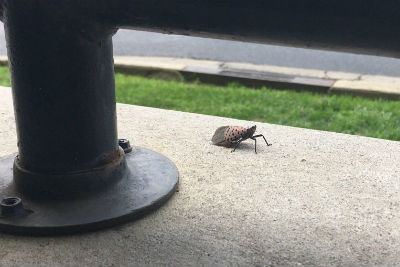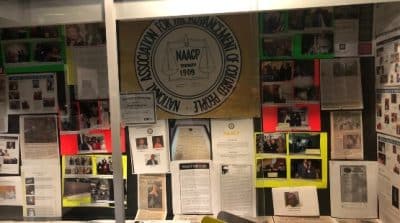
Virginia Department of Agriculture and Consumer Services surveys for the spotted lanternfly indicate that the pest has become established in Clarke and Warren counties.
As a result, Virginia’s Spotted Lanternfly Quarantine will expand in mid-March to include Clarke and Warren counties. Expansion of the quarantine is necessary to slow the spread of this insect pest to un-infested areas of the Commonwealth.
To slow the spread of the spotted lanternfly, businesses in the quarantined area are required to obtain a permit from VDACS and inspect regulated articles to ensure that the articles do not contain any life stage of the spotted lanternfly.
VDACS is hosting two virtual meetings to provide information on the spotted lanternfly and outline steps for businesses to obtain a permit. The meetings will be held through WebEx on the following dates:
- Feb. 22, from 9 to 10 a.m.
- Feb. 23, from 2 to 3 p.m.
Businesses in the quarantined areas are encouraged to participate in one of the virtual meetings. Public participation information for both of these meetings is available at www.vdacs.virginia.gov/plant-industry-services.shtml.
Regulated articles are those, which are considered to be a risk for movement of spotted lanternfly to un-infested areas and include, but are not limited to:
- Any life stage of the spotted lanternfly.
- Live or dead trees; nursery stock; green lumber; firewood; logs; perennial plants; garden plants or produce; stumps; branches; mulch; or composted or un-composted chips, bark, or yard waste.
- Outdoor industrial or construction materials or equipment; concrete barriers or structures; stone, quarry material, ornamental stone, or concrete; or construction, landscaping, or remodeling waste.
- Shipping containers, such as wood crates or boxes.
- Outdoor household articles, including recreational vehicles; lawn tractors or mowers; grills; grill or furniture covers; tarps; mobile homes; tile; stone; deck boards.
- Any equipment, trucks, or vehicles not stored indoors; any means of conveyance utilized for movement of an article; any vehicle; or any trailer, wagon.
Once the quarantine expands, businesses located in Clarke and Warren counties, along with previously quarantined localities of Frederick County and the city of Winchester, which are shipping these regulated articles to locations outside of the quarantined area, must follow the requirements of the spotted lanternfly quarantine.
Businesses may download a permit application from the VDACS website at www.vdacs.virginia.gov/plant-industry-services.shtml. Submit completed permit applications to VDACS at [email protected]. Online training is required prior to submitting an application.
There is a fee of $6 per person for the training, but no fee for the permit. Other states recognize Virginia’s spotted lanternfly permit, which restricts the movement of regulated articles originating from a spotted lanternfly quarantine.
The spotted lanternfly is an invasive insect pest. The state’s first discovery of this pest was in Frederick County in January 2018 and at that time, it was just the second known detection of the spotted lanternfly in the U.S. The first occurrence of spotted lanternfly in the U.S. occurred in Pennsylvania in 2014. The spotted lanternfly is a native insect of Asia and prefers feeding on the Tree of Heaven (Ailanthus altissima), but will also feed on grapes, peaches, apples, maples, walnuts, hops, cucumbers, and basil. The spotted lanternfly also has the potential to be a serious nuisance pest to homeowners when it is present in high numbers.
For more information on the spotted lanternfly quarantine and the spotted lanternfly permit, email [email protected], call 804.786.3515, or visit www.vdacs.virginia.gov/plant-industry-services.shtml.










